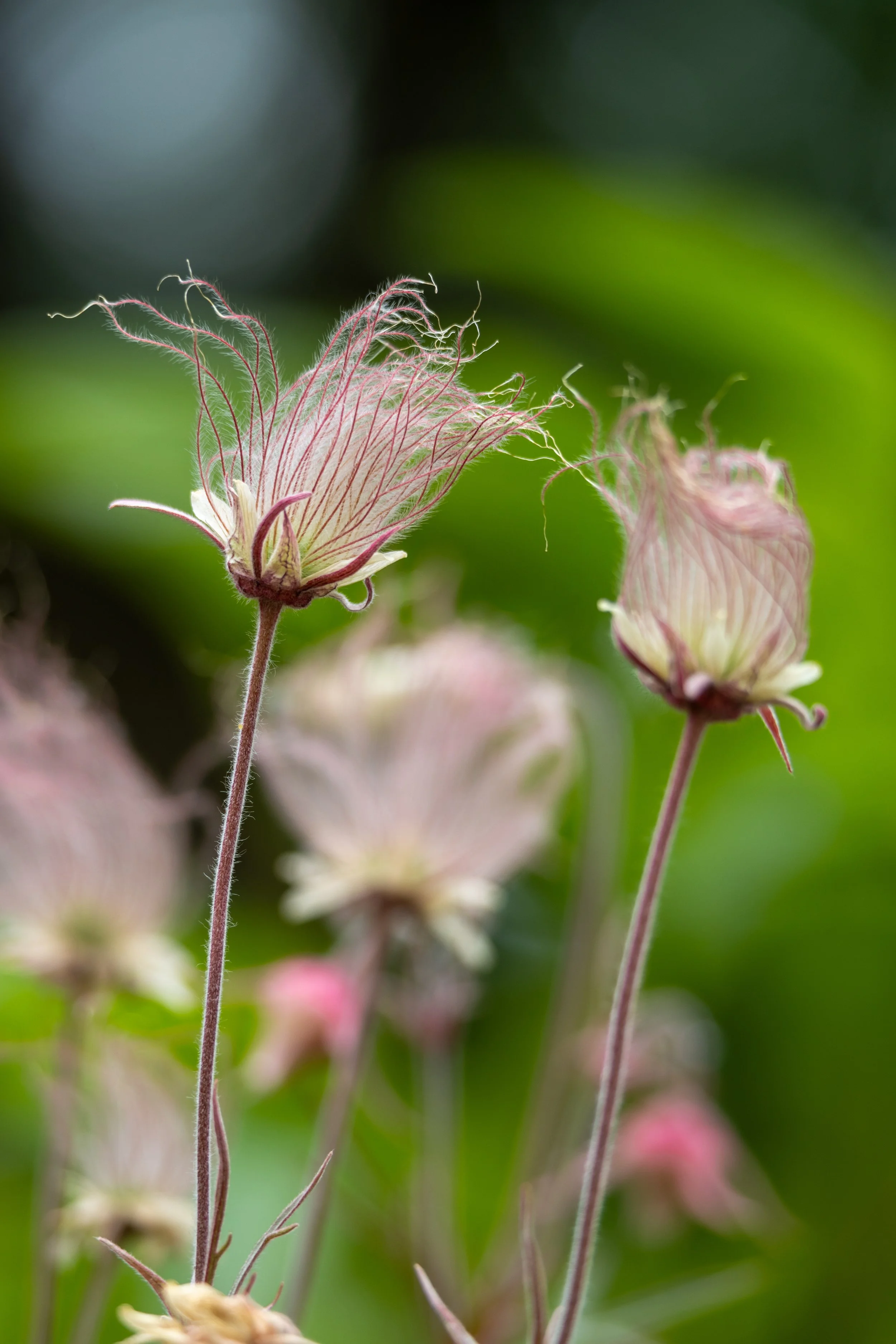Why “Prairie Smoke”?
The name “prairie smoke” comes from a flower that blooms across the midwest in the spring. These flowers are beautiful, but more importantly, they are resilient and vital to the biodiversity of the midwest prairies. These plants provide pollinators with nectar, their seeds feed birds and mammals, and their deep roots stabilize the soil. The prairie smoke flower to me symbolizes resilience and how reciprocity and interdependent relationships heal ecosystems and communities. They’re not only a reminder of my midwest roots, but also an example of how humans too can heal within healthy relationships with each other.
Meet Jurnee
I belong to the Mandan, Hidatsa, and Arika Nation which is a tribe located in Western North Dakota. Growing up, I was greatly impacted by my grandmother, mother, aunties, cousins, and many other strong Indigenous women in my life who taught me the importance of caring for each other within our communities. I also witnessed the often devastating results of generational trauma paired with the lack of culturally appropriate mental healthcare services which is ultimately what led me to go into mental health work. I do not take my role as a careworker lightly; I am honored to be able to work with individuals as they are on their healing journeys. My own lived experiences with being neurodivergent and other mental health struggles also have impacted my interest in psychology and guide my practice. Because of these experiences, I understand how difficult it can be to navigate an oftentimes unfamiliar mental healthcare system and open up to a stranger about things that may have been unspoken for generations. My priority is building a therapeutic relationship built on safety, trust, curiosity, and oftentimes humor!
When not being a therapist, I love spending time outside swimming, running, hiking, identifying plants, and camping. I also enjoy live music, photography, cooking, and eating at great restaurants!
My Approach
My approach is trauma-informed, decolonized, and holistic. I work with individuals who have experienced trauma, generational trauma/oppression; who are experiencing anxiety, depression, body image dissatisfaction, suicidality, self-esteem issues, identity issues; who are living with neurodivergence; and those belonging to BIPOC and LGBTQIA+ communities. In my work I am warm, non-judgemental, non-pathologizing, and authentic. I am person-centered, I never believe that I know my clients better than they know themselves however I will gently challenge when appropriate. I also often use humor in the therapeutic space as this has been a traditional tool of healing within many Indigenous communities including my own.
I have been trained through education and previous employment in mostly cognitive/behavioral approaches, however, I am currently attending trainings and educating myself in more somatic-based modalities including internal family systems. As someone who takes an eclectic approach to therapy, I collaborate with clients at the start of our therapeutic relationship and ongoing, to make sure that I am working in a way that best fits them. My job is to provide a warm and accepting space where you can feel safe to be your authentic self. This is a space where we can explore the different parts within yourself, how your past has shaped you, your sense of identity; where you can process painful memories, grief, trauma; where you can identify your values and goals; and so much more. Together we can help you connect with your authentic self, live a fuller life, and increase your capacity to feel painful emotions as well as experience the joy and pleasure that life has to offer.
Credentials, Trainings, and Memberships
Bachelor of Science in Child Psychology from University of Minnesota
Master of Arts in Applied Child and Adolescent Psychology from University of Washington
Licensed Mental Health Counselor Associate
Currently training in trauma-focused therapy, including somatic and IFS approaches (not yet certified)



